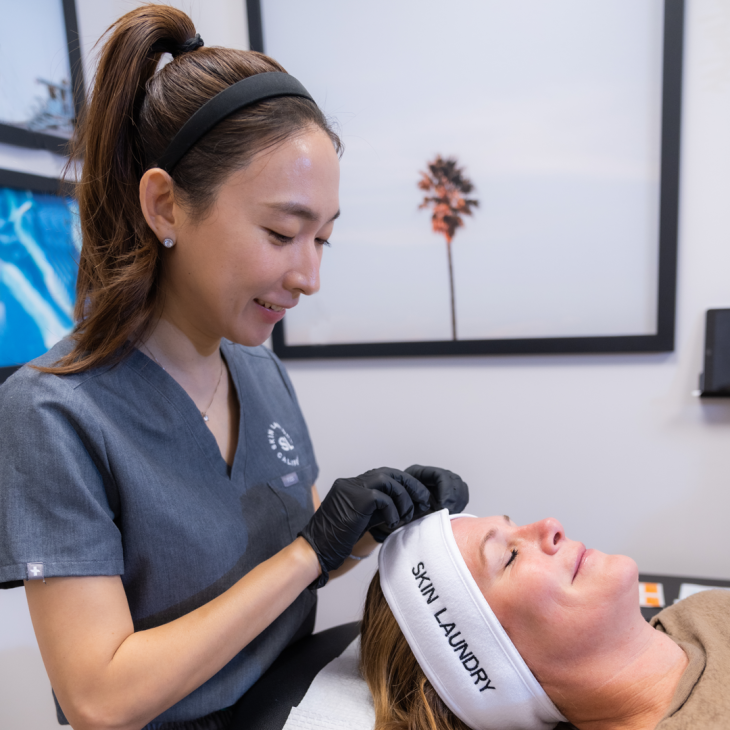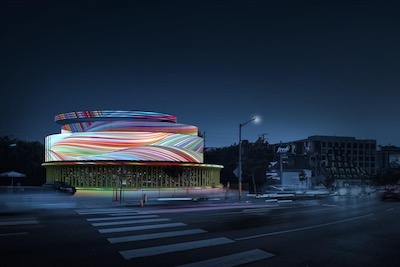Hearing aids in the 21st century with Dr. Melissa Alexander
Hearing aids have come leaps and bounds just within the last ten years. Advancements in technology have resulted in hearing aids of higher quality that compliment any lifestyle. Patients have far more options than they did a decade ago, and the possibilities are virtually endless.
“Everyone has an idea of what hearing aids look like and sound like based on their friends’ and family’s experiences. Most of the time it’s not always positive,” said Dr. Melissa Alexander, an audiologist based in Santa Monica. “10 years ago, we didn’t have hearing aids that had technology that reduced background noise. They were bulky in size. We didn’t have the ability to keep things waterproof or miniaturized. We didn’t have wireless technology. Now this whole world has opened up for patients that address a lot of the common complaints that people were dealing with for years.”
Chunky hearing aids of the past have been replaced with small and powerful devices that require far less maintenance. Dr. Alexander continued, “We have types of hearing aids that we can implant into the patients that are long-lasting. Those are called Lyric, and those hearing aids are placed four millimeters from the eardrum. You don’t have to change the battery. You can sleep with them, shower with them, and live your life normally. You don’t have to turn them off. Every three to four months, the patient will come back to the office for a five- minute appointment- sometimes I go to their homes or their offices- and I pull them out before the battery fails, put brand new ones in, and within in five minutes they’re changed out.”
With improvements in wireless technology, patients can now hear someone speaking from a further distance than before. Dr. Alexander explained, “If you’re wearing a hearing aid and sitting in the living room, and your partner or friend is in a room that’s over 20 feet away, they can wear a tiny accessory that’s the size of a paper clip on the inside of their shirt or around their neck. When they speak normally, the patient will hear them directly because their voice is carried wirelessly to the hearing aid, amplified according to their hearing loss from any distance in the room. How far the speaker is away from the microphone is irrelevant at this point as long as they have this little accessory.”
Patients can now also control nearly every aspect of their hearing aids through an iOS application. “Imagine you’re sitting in a noisy restaurant and you have an app on your phone where you can control your hearing aid with your app,” Dr. Alexander continued. “You can eliminate all the background noise. You can change where the hearing aid microphones are focused to pick up speech, with a narrow beam in front of you or wide for a group. You can change the equalizer to enhance speech. It’s very user friendly. And with the microphone accessory, if you’re sitting in a really noisy restaurant, which happens in almost every restaurant in LA, you can mute the microphone and only pick up the voice of the person streaming through the accessory that they’re wearing. For many patients, they’ll hear speech from that person better than a person with normal hearing.”
Patients can even take a phone call and stream it through the hearing aids without holding the phone up to them. Dr. Alexander added, “The hearing aids can become a Bluetooth speaker or headset. You can run on a treadmill with them and not even have to wear headphones. You can play music directly through the waterproof hearing aids.”
In some cases, the new hearing aid technology can even save lives. Dr. Alexander explained, “We even have certain hearing aids that track your steps, measure your heart rate, blood pressure. God forbid you’re hiking and you have a heart attack, and you’re by yourself. The hearing aid has a specific way of telling the body chemistry, your temperature, and your heart rate and knows if you’re in trouble. And by a tilt of the head, you’ll have an SOS system come through your hearing aid and ask you if you need help medically. All you have to do is drop your head. It measures the direction of the fall of your head, and it’ll send a signal to the closest 9-1-1 to come rescue you.”

Strides in hearing aid technology have vastly improved the quality of life for patients with hearing loss.
“The stigma of wearing hearing aids I think is starting to erode because the technology is so advanced now,” Dr. Alexander said. “You have more freedom these days. You almost have an advantage over people that don’t have hearing aids.”
With all the different options for hearing aids, many of which most people with hearing loss are unaware of, patients at Alexander Audiology can try any of the technology for 90 days risk-free.
“We really have every available opportunity to research what works for patients, the good, the bad, the everything, and really get to try different products. I’ve seen so many of my patients for so many years. You become invested in their lives,” Dr. Alexander said.
For more information about Alexander Audiology, visit alexanderaudiology.com, call (424) 738-3778, follow on Facebook and Instagram @alexanderaudiology or find them on Yelp.























